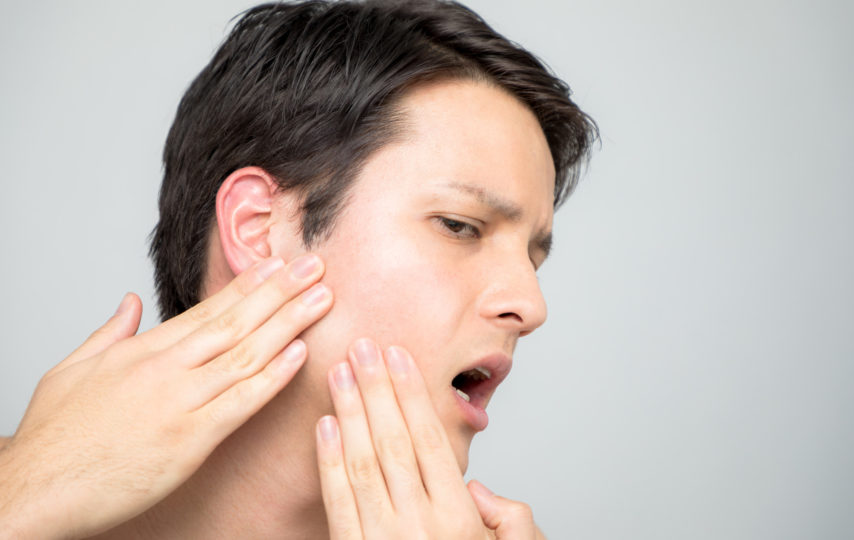Are you suffering from ear and jaw pain?
Simultaneous ear and jaw pain can be due to many causes. In some cases, pain and discomfort will go away on their own. Other cases are more severe.
An example of a cause that’s on the more severe side is a TMJ disorder, which affects 10% to 15% of adults. Infections are also a serious case, especially if they spread to other parts of the body.
In any case, it’s important to know first the exact cause to know what treatment plan best fits you. Here are some examples of what’s causing your ear and jaw pain.
TMJ Disorders
TMJ stands for temporomandibular joint. This is a joint that connects your lower jaw (mandible) to your skull.
It moves in many directions as you chew and talk; as such, it’s vulnerable to wear and tear. This can cause a TMJ disorder.
TMJ disorders may also be due to medical conditions. In general, a disorder causes pain and inflammation to the TMJ and surrounding areas.
It can involve neck or facial pain that radiates to the ear. Some people also experience pressure on the sinuses or eye pain.
Other factors can also cause TMJ pain, such as teeth grinding and misalignment of the teeth or jaw. If you’re experiencing ear and jaw pain or other symptoms for more than three months, you may have a chronic TMJ disorder.
Rheumatoid Arthritis
Rheumatoid arthritis is an autoimmune and inflammatory disease. This happens when your immune system attacks your healthy joints. It affects the hands, wrists, and knees.
The TMJ is often the last joint that it affects, but occurrences are not uncommon. Aside from pain in the joints, symptoms include stiffness in the joints. You may also experience tenderness and swelling, weakness, or weight loss.
Are you experiencing pain in the TMJ alongside these symptoms? You may want to get checked for rheumatoid arthritis.
Teeth Grinding
Teeth grinding or bruxism can cause several oral complications. It can erode your teeth faster, strain your muscles, and even cause teeth misalignment. As such, continuous teeth grinding at night can make you feel pain in the jaw and ears.
This habit may also lead to a TMJ disorder.
Teeth grinding at night, unfortunately, most often goes unnoticed. Some telltale signs are a dull headache and pain in the jaw and ears. Talk to your dentist if you suspect you have bruxism or ask a loved one to monitor your sleep.
You’ll need to assess the cause of your teeth grinding to manage it. It can be due to stress or a sleeping disorder. Don’t hesitate to book a consultation to discuss dental solutions at the general dentist In newmarket on to address a potential TMJ disorder.
Sternocleidomastoid Injury
The sternocleidomastoid is a long pair of muscles located under the ear to the sternum and clavicle. It’s attached to the mastoid process, a part of the bone behind the jaw and under the ear. The primary purpose of these muscles is to help the head’s movement in turning, rotating, and nodding.
An injury to this muscle is also one of the many causes of ear and jaw pain. You can find trigger points along the front or side of the neck.
You may also experience eye pressure and sinus pain. In many cases, the symptoms can be similar to a cold or infection.
When diagnosing a sternocleidomastoid injury, your doctor has to rule out infection. Causes of pain or injury can be poor posture or sleeping in an awkward position, trauma, or even arthritis.
Ear Infections
As expected, ear infections also cause pain around, behind, or in the ears. Viruses or bacteria may be the cause, but it can also be due to fluids building up inside the ear.
Aside from pain in the ear, an infection can also lead to congestion, fever, and low energy. The pain can also spread to the sinuses, jaw, and teeth.
An example is Swimmer’s Ear, which occurs in the outer ear canal. Swimmer’s Ear refers to trapped water inside the ear canals. This creates a moist environment for bacteria to grow in, causing pain that you might feel in your ear and jaw areas.
If left untreated, an ear infection can spread further into other parts of the body. Some cases can be quite severe, so a visit to the doctor is a must.
Oral Infections
Oral infection not only causes pain to the affected tooth and gums but to the surrounding areas, as well. It’s common to feel pain in the jaw area, especially if swelling occurs in the gums.
A dental abscess is an example in which pus builds up inside your teeth or gums. A buildup of plaque can cause bacteria to spread inside the tooth tissue, creating an abscess. It can occur in the gums, the supporting bone structure, or the soft pulp of the tooth.
Infections can spread, which can cause you to feel pain in the ear. It may reappear as pain in the jaw and ear after disappearing as pain in the teeth. This is a signal that the infection is spreading, and you need to go to a dentist.
A dental abscess can be a valid reason to go to the ER. Studies show that admission rates for dental infections occur at a rate of 1 per 2600 per population.
When to See a Doctor For Ear and Jaw Pain
You may first try some home remedies, like taking over-the-counter painkillers. However, if symptoms don’t improve after a few days, schedule a visit to your doctor.
You should also visit the doctor if it gets in the way of your daily life. A trip to your doctor can allow you to pinpoint the cause and start the appropriate treatments for ear and jaw pain relief.
What You Need to Know About Ear and Jaw Pain
Are you experiencing ear and jaw pain? Here are some possible reasons for what’s causing your discomfort. If you’re still unsure about your condition, it’s best to consult a professional.
Thanks for reading our article! Want to learn how to ease your ear and jaw pain? Check out our other blog posts for more guides, and start your recovery today.













